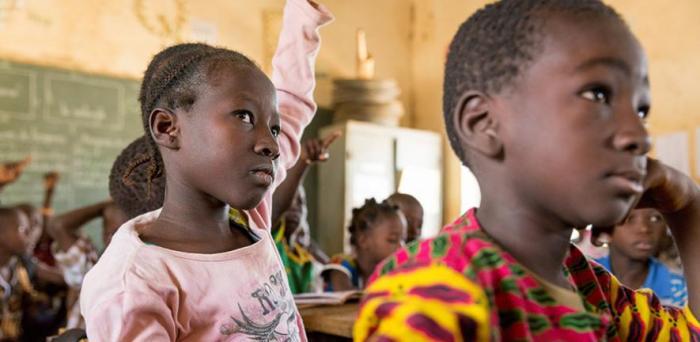The University of Cambridge-led study shows that children from the very poorest families, in what are already some of the lowest-income countries in the world, consistently perform worse in basic literacy and numeracy tests than those from more affluent backgrounds.
The overwhelming reason, the study found, is that poorer children are disproportionately clustered in the lowest-quality schools, which often lack even basic resources – such as textbooks, electricity, or toilets.
The researchers say that there is an urgent need to ‘raise the floor’ in global education, by focusing both national-level efforts and international aid on students from the most disadvantaged communities.
Institutions like the United Nations Educational, Scientific and Cultural Organisation (UNESCO) and the World Bank have long referred to a ‘learning crisis’ in the Global South. While growing numbers of children in low-income countries now attend school compared with previous generations, many still lack basic literacy or numeracy skills.
Until now, most analyses have looked at the factors that explain low learning outcomes in general, rather than differentiating between groups of children. But the new study suggests that there is a huge gulf between the quality of education that children from the poorest families receive compared with wealthier children, and that this is directly linked to their ability to read, write, add, or subtract, by Grade 6.
Dr Rob Gruijters, from the Research for Equitable Access and Learning (REAL) Centre, at the Faculty of Education, University of Cambridge, who led the research, said: “There is a high level of social segregation in many of these countries’ education systems. The pattern is similar to the UK, where rich children tend to go to better-resourced schools. But the differences in school quality are much more pronounced, and they are strongly linked to family background”
“Global reporting on the learning crisis often pays little attention to these inequalities, focusing instead on average differences between countries. But if we really want to fix things, there needs to be a commitment not only to investing in education, but to raising the floor: to ensuring that every school has a minimum level of support, in staffing, training, and resources.”
The study analysed data from the Programme for the Analysis of Education Systems (PASEC), a survey managed by the association of education ministries in francophone Africa. The survey assessed more than 30,000 Grade 6 students in more than 1,800 schools in 10 countries: Benin, Burundi, Burkina Faso, Cameroon, Chad, Congo (Brazzaville), Ivory Coast, Niger, Senegal and Togo. All 10 have ‘received scant attention’ in previous analyses of the learning crisis, the study says.
Image: Students in class in Burkina Faso
Credit: Global Partnership for Education
Reproduced courtesy of the University of Cambridge
